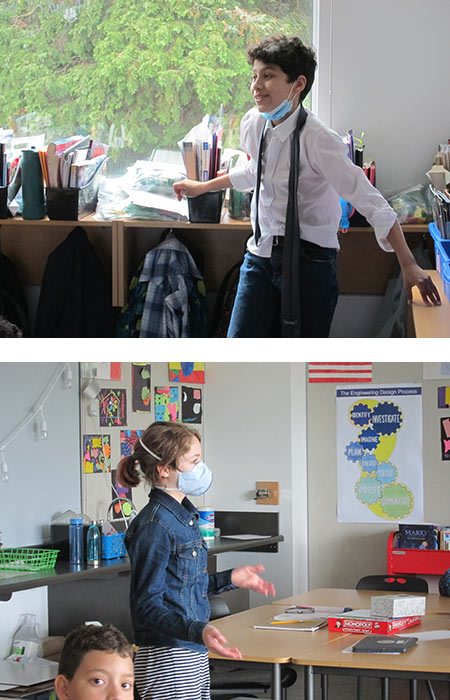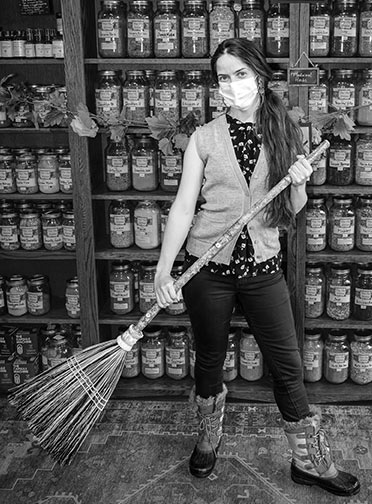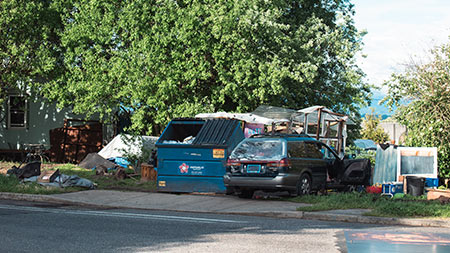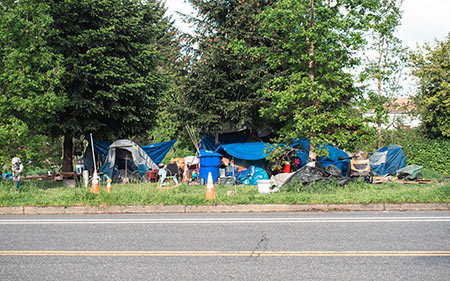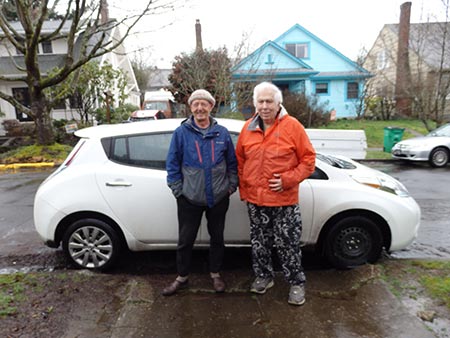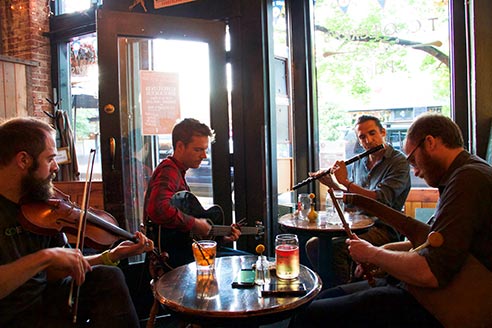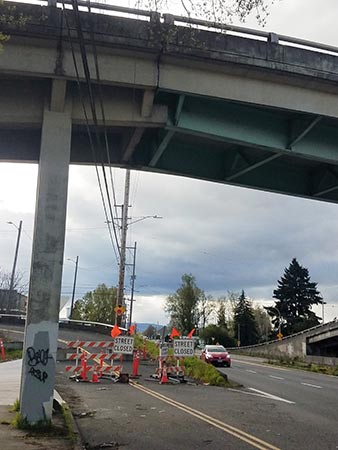By Rob Cullivan | CNews Editor
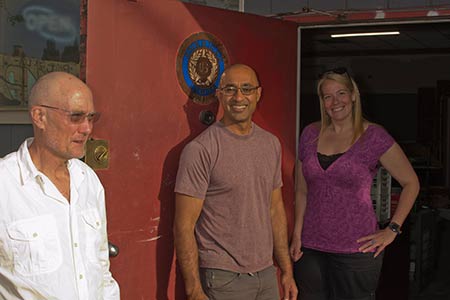
Robin Eckstein, who served in Iraq, summed up why it’s important for her and other military veterans to have a space where they can bond. “You can’t watch ‘Generation Kill’ on HBO and all of sudden know what it’s like to deploy.”
As our nation prepares to celebrate Independence Day, CNews spoke to Eckstein, along with three other veterans, about their lives as well as their meeting space, American Legion Frederick and John Ravin Post 134, 2104 NE Alberta St.
Founded in 1947, the Post has a storied history in Concordia and has even drawn attention from the national press at times for its outreach work, including serving as a warming shelter in the past for the homeless during winter. Since its founding it’s seen everything from potlucks and neighborhood dances to raucous punk rock shows and LGBTQ trivia nights.
Current Post Commander Barry M. Larrain said Post 134 welcomes all veterans of any political affiliation whatsoever. Eckstein said she is a lesbian who has encouraged other LGBTQ veterans to join the American Legion, and Peenesh Shah, a state assistant attorney general and Post member, noted his parents are from India.
“If we live in a community that is diverse, it should be the case that our Post is diverse,” Eckstein said. “The military is a microcosm of the nation. There are people of all different backgrounds, genders, sexualities, races and nationalities.”
Construction costs
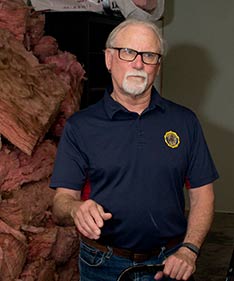
commands Post 134, and has been working with others to renovate the building. Photo by Michael French
The Legion members said they’re currently seeking around $25,000 in donations to complete renovating the Post’s Quonset style building and want to encourage younger veterans to join. To that end, the Post—named for two brothers who died while serving in the navy in World War II—is highlighting its building renovation efforts and asking the public to consider funding the construction work. The Post has already installed a new furnace, completed some work on its walls and floors and is looking to upgrade its overall appearance.
But even more important to the Post’s future than its space are the people whom its leaders want to occupy it. Larrain, a retired Army colonel, noted 76 percent of the Post’s 130 members are older than 60, and the Legion wants to expand its membership. The nation’s interest in its military waxes and wanes depending on the news cycle, he and the other leaders mused, but veterans never forget other veterans. Larrain wants the younger generation of veterans to know the American Legion is there for them.
“We have to have a voice,” he said. “We have to have something that represents all veterans, to represent our interests.”
Eckstein, the Post’s finance officer, said the Legion has helped her find other veterans who, like her, have experienced PTSD related to their service, as well as given her a chance to do what all veterans have done, namely serve their communities. On that note, the Post’s Adjutant, Patrick Bardel, a Marine veteran, said the organization gives purpose to his life.
“Our Post 134 is my primary volunteering focus,” he said. “I’m retired, but I never planned to, or will, stop working. The Post is an outlet of my energy to have a place for veterans to get together and put our collective energies out into the community.”
Shah, a U.S. Army veteran who served in Iraq, is a member of the Post’s executive committee and wants the Post to become more integrated into the life of Concordia and the surrounding neighborhoods. He said, for example, the Post can facilitate meetings between school children and American Legion members so they can learn about veterans. He also noted he enjoys the camaraderie the Post provides him. “It’s given me a chance to connect with other veterans of different generations,” he said.
To learn how to donate to American Legion Post 134, visit post134.com and click on “Donate.” To learn more about becoming a member, contact the adjutant at patrickb@portlandrainbarrels. com
CNews Editor Rob Cullivan is a veteran journalist, publicist and grant writer who has written about everything from rock ‘n’ roll to religion. He possesses a deep affection for writers and photographers who hit deadline.

